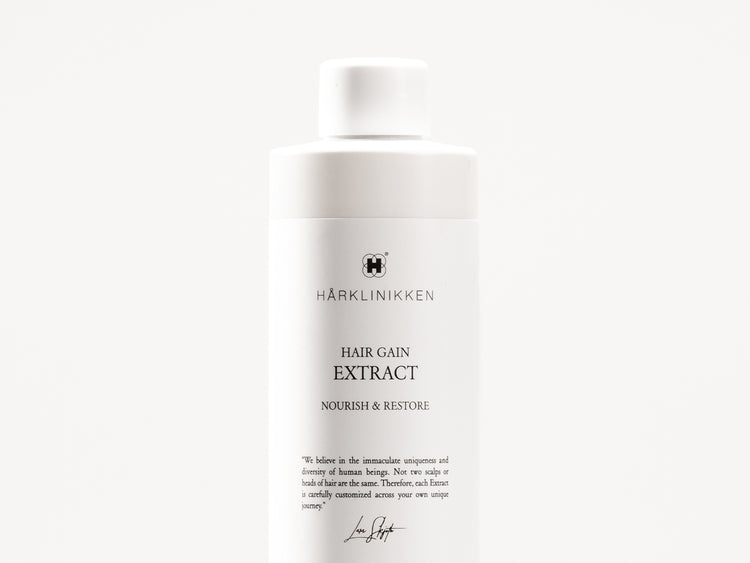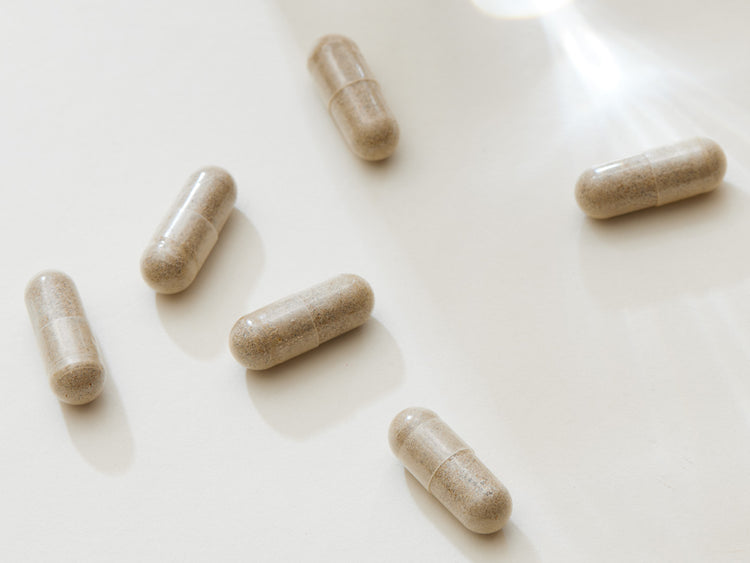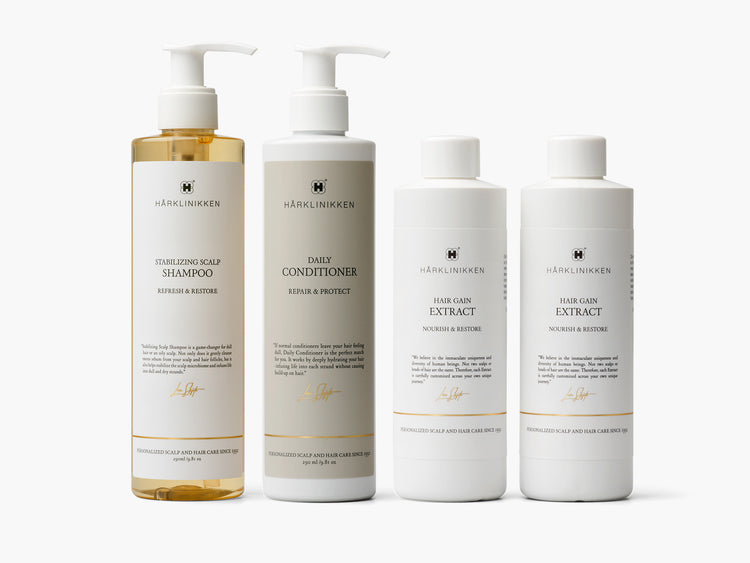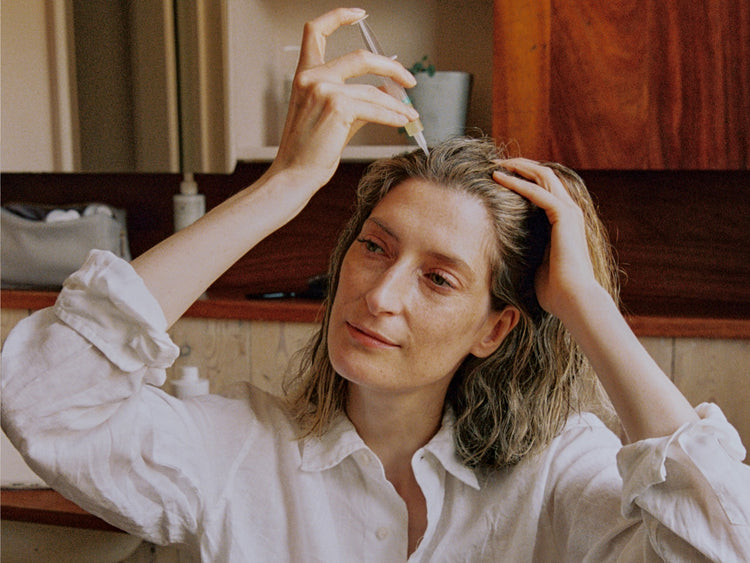Nutrients are organic compounds essential to various bodily functions and are crucial in your overall health. Central to your ability to heal, metabolism, hormone regulation and more, nutrients literally keep you functioning – without them, your body simply shuts down. Beyond your general wellbeing, nutrients also play a major role in scalp health and hair growth, with research showing that certain deficiencies in vitamins, trace minerals, amino acids and fatty acids can contribute to excessive shedding, thinning and loss.
What causes vitamin and other nutrient deficiencies?
Nutrient deficiencies are the result of our bodies not receiving enough nutrition and are commonly caused by imbalanced or restrictive diets, poor gut health, digestive problems, medical conditions, and certain medications. These deficiencies can present themselves in a myriad ways, sometimes including thinning hair, excessive shedding, and brittle strands that are prone to breakage.
Which nutrient deficiencies contribute to hair loss?
While rarely the sole cause of hair loss or thinning, there are specific deficiencies in vitamins, trace minerals, fatty acids and amino acids that can significantly contribute to your scalp and hair’s lack of health over time.
Iron
Iron aids the body in producing hemoglobin which helps red blood cells transport oxygen around the body. Hair follicles need plenty of oxygen to facilitate hair growth. A lack of this mineral can result in telogen effluvium – when more hair goes into the shedding phase and hair growth rate slows down.
Ferritin
Often overlooked when checking for iron, ferritin is an important protein that stores iron in the body. Low ferritin levels can often be an indication of iron deficiency and may therefore be linked to hair loss.
Vitamin D
Vitamin D plays a role in cell turnover and hair follicle health, therefore low levels can impact hair growth and quality. Research has shown that individuals with alopecia areata commonly have low vitamin D levels.
Biotin (Vitamin B7)
Biotin is essential to keratin production – the fibrous protein that gives our hair, skin and nails structure and strength. A biotin deficiency can lead to weak, brittle hair that’s prone to damage and unable to grow long.
Vitamin B12
Vitamin B12 plays a key role in the production of red blood cells (which, again, transport oxygen around the body) and helps the body metabolise amino acids – which support hair strength and shine. Low levels of vitamin B12 can sometimes negatively impact your hair’s quality from the root.
Omega-3 and Omega-6 Fatty Acids
The body cannot produce Omega-3 and Omega-6 fatty acids but they are crucial to our overall health and help to nourish the scalp and hair. These fatty acids can do wonders in supporting hair follicle function. They are also able to help reduce scalp inflammation, irritation and dryness – issues that can lead to hair loss, weakness and breakage over time.
Vitamin E
Vitamin E has antioxidant properties that help to shield cells from the damage caused by environmental stressors. This protection is crucial for the scalp’s delicate microbiome, ensuring that the skin and hair follicles and strands remain intact, nourished, hydrated and protected.
Zinc
While zinc is essential to cell metabolism, hormone balancing, healing and more, our bodies don’t produce it naturally – so we must rely on outside sources for this essential mineral. A lack of zinc can manifest in telogen effluvium or brittle hair strands that break easily and cannot grow long.
Other vitamin and nutrient deficiencies that might affect your scalp and hair health:
- Vitamin C
- Vitamin B2
- Folate (Vitamin B9)
- Pantothenic Acid (Vitamin B5)
- Selenium
- Copper
- Niacin
Does gender affect vitamin and nutrient deficiencies?
Some nutrient deficiencies are more common in certain genders, and these same deficiencies can affect people differently.
Common vitamin and nutrient deficiencies in women:
- Vitamin D
- Vitamin B12
- Calcium
- Iodine
- Iron
- Ferritin
Common vitamin and nutrient deficiencies in men:
- Vitamin B12
- Vitamin B6
- Vitamin D
- Folic acid
- Magnesium
- Calcium
- Iron
- Iodine
What’s the best way to address hair loss caused by vitamin and other nutrient deficiencies?
While focusing on your strands can be tempting, it’s important to also look at your scalp and hair health from the inside – especially when it comes to nutrient deficiencies.
Eat a balanced diet
The best way to ensure your body gets the right amount of nutrients is to eat a balanced diet of organic and unprocessed whole foods. Nutrient-rich foods that can help restore deficiencies include dairy, fatty fish, nuts, whole grains and a colourful array of vegetables.
Take a responsibly formulated supplement
In theory, supplements should provide an extra dose of the vitamins, minerals and other nutrients required for increased hair growth. In reality, a lot of supplements on the market contain unnecessary ingredients or absurd amounts of specific constituents. Unlike many others, Hårklinikken Hair Supplements use only clinically proven, precision-picked ingredients at their most efficacious and responsible levels to give your scalp and hair the boost they need for visibly stronger and thicker hair. Our supplement is designed to address eight functional contributors to hair health and density, supporting full-spectrum hair wellness.
Speak to an expert
If you’re concerned you have a serious nutrient deficiency, it’s important to first speak with your doctor. Similarly, we recommend discussing any significant diet or lifestyle changes with a trusted healthcare expert. For all your scalp and hair health questions, reach out to a Hårklinikken Hair Specialist. We will analyse the condition of your scalp and strands to create a transformative routine to get the hair you want.

Unsure where to start?
We only accept candidates who we believe we can help, which is why our online Hair Assessment is the best place to start. Based on your results, you will either qualify for immediate treatment or we will organize a consultation.






